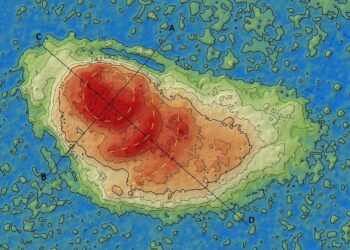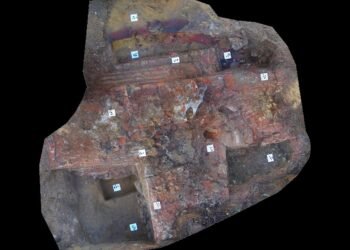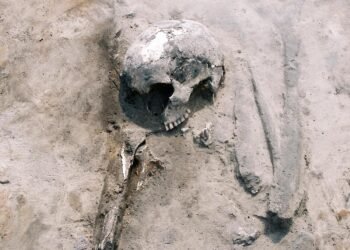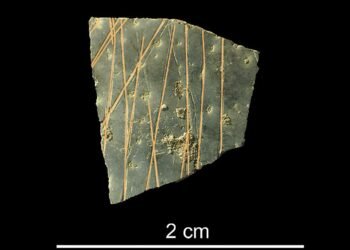Archaeologists working in Büklükale, located approximately 100 kilometers southeast of Ankara, Turkey, have discovered a remarkably well-preserved clay tablet dating back over 3,300 years.

The palm-sized artifact was unearthed in May 2023 by Kimiyoshi Matsumura, an archaeologist affiliated with the Japanese Institute of Anatolian Archaeology.
The tablet, adorned with cuneiform script in both Hittite and Hurrian languages, recounts a harrowing tale of invasion and turmoil amidst a backdrop of civil strife. According to Mark Weeden, an associate professor of ancient Middle Eastern languages at University College London, the tablet’s inscription describes a devastating foreign incursion that targeted four Hittite cities, including the capital, Hattusa. The invasion coincided with a period of internal conflict within the Hittite Empire, suggesting possible political motivations behind the attack.
Matsumura, who led the excavation, believes the tablet served a religious purpose, possibly as a plea for divine intervention during the tumult of war. He notes that the prayer inscribed in Hurrian language invokes the storm god Teššob, a prominent deity in both Hittite and Hurrian pantheons, beseeching divine guidance and protection amidst the chaos of battle.
The discovery sheds new light on the religious and political dynamics of the Hittite Empire during the reign of King Tudhaliya II, approximately between 1380 to 1370 BCE. Despite the empire’s eventual collapse in the early 12th century BCE, triggered by factors such as civil unrest, climatic changes, and external invasions, the events chronicled in the tablet predate this downfall by nearly two centuries. Matsumura emphasizes that the tablet’s contents align with known historical accounts of a period of civil war that plagued the Hittite heartland, resulting in widespread destruction and upheaval.
The excavation site at Büklükale has long been a focal point for archaeological research, with Matsumura and his team conducting extensive excavations for over a decade. Previous findings, including fragmented clay tablets, hinted at Büklükale’s significance as a major Hittite settlement, but the recent discovery of the intact tablet underscores its potential as a royal residence rivaling Hattusa.
Experts acknowledge the importance of this find, though formal publication in a peer-reviewed journal is awaited.























